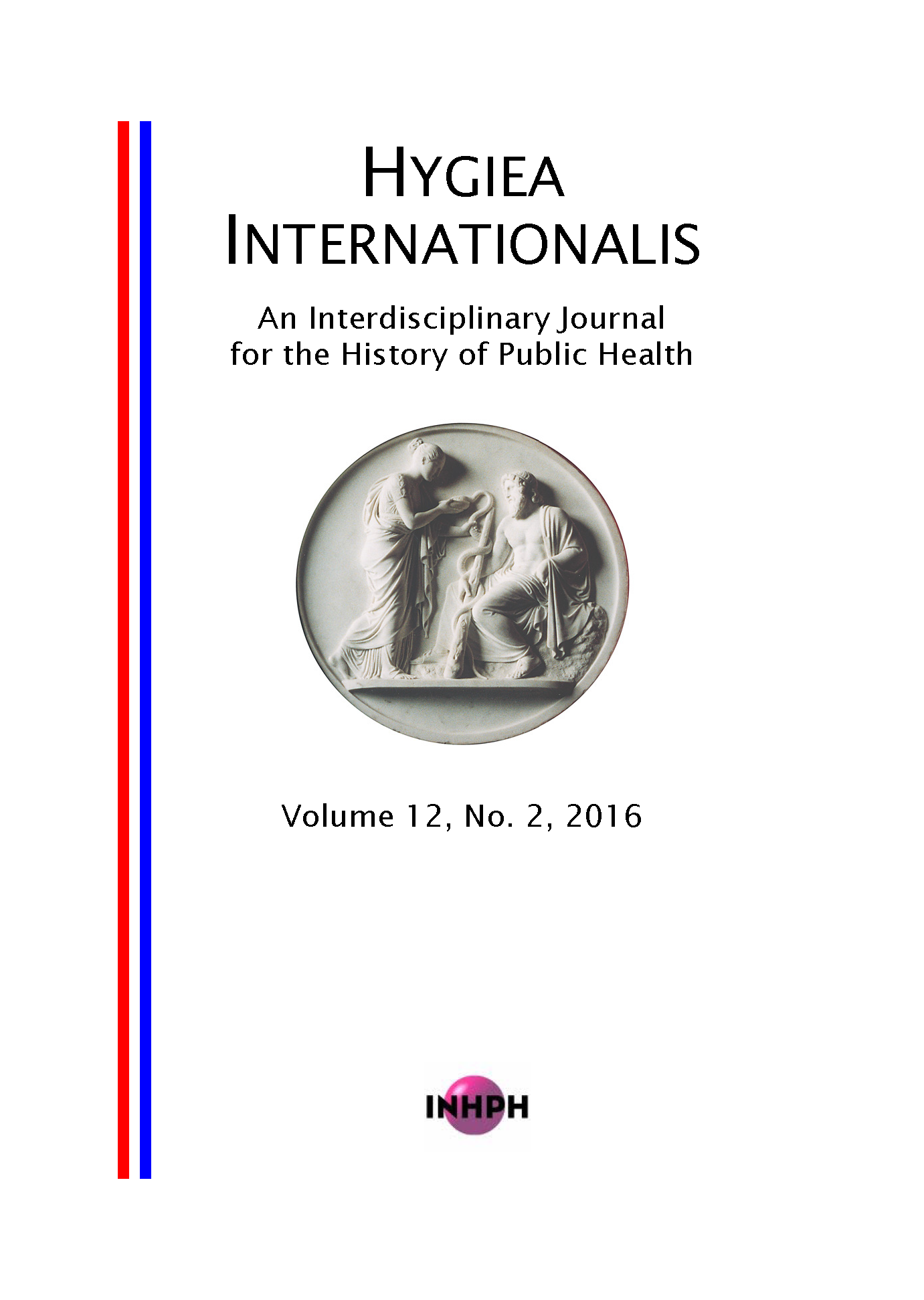Clergy and Vaccination in Southern Italy in the Early Nineteenth Century
DOI:
https://doi.org/10.3384/hygiea.1403-8668.1612229Keywords:
Vaccination, Clergy, Southern Italy, Early Nineteenth CenturyAbstract
The article focuses on the attitude of the clergy towards vaccination in Southern Italy in the early Nineteenth Century, showing that the vast majority of the priests looked at the Jenner’s method with distrust, if not with blind hostility. Determining such a situation there were mainly theological and ecclesiological factors. The thesis of the effectiveness of the vaccine for human beings was based, in fact, on the idea of an ontological analogy between the bovine species and the human species, which was not compatible with the Catholic view. From an ecclesiological point of view, moreover, many priests considered the task of dealing with, or worrying about, the physical health of their parishioners to be extraneous to their duties, thus forgetting (consciously or not) the vast thaumaturgic activity of the Redeemer Himself.Downloads
Published
2016-05-16
How to Cite
Tanturri, A. (2016). Clergy and Vaccination in Southern Italy in the Early Nineteenth Century. Hygiea Internationalis: An Interdisciplinary Journal for the History of Public Health, 12(2), 29–50. https://doi.org/10.3384/hygiea.1403-8668.1612229
Issue
Section
Articles
License
Copyright (c) 2016 the Author(s)

This work is licensed under a Creative Commons Attribution-NonCommercial 4.0 International License.






